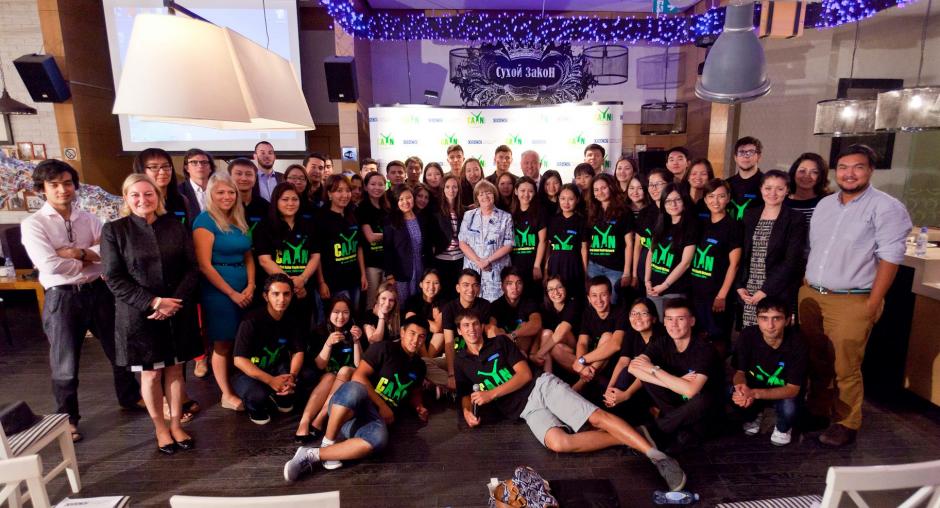OSCE-supported Central Asian Youth Network marks 10-year anniversary

ALMATY, Kazakhstan, 26 August 2014 – A three-day annual seminar of the Central Asian Youth Network (CAYN), which marks its tenth anniversary this year, began today in Almaty, Kazakhstan.
The event brings together more than 70 university students and alumni from Central Asia, Afghanistan and Mongolia as well as parliamentarians, politicians, diplomats, academics and business representatives from Kazakhstan, Kyrgyzstan, Sweden, the United States, Uzbekistan and representatives of international and non-governmental organizations.
The participants discussed various aspects of youth empowerment in politics, business, civil society, and in promotion of democracy and human rights. The topic of this year’s event “Youth and the OSCE: Creating a Culture of Participation” reflected the priority set by the Swiss Chairmanship for 2014. One of the discussions will focus on the OSCE Youth Action Plan currently under development.
The first session of the seminar was dedicated to the analysis of developments in Central Asia and in the wider region over the last ten years as well as the ways to address challenges and threats to its security. In the coming days, students and alumni will attend various seminars on professional development, personal growth, crisis communications, political activism and conflict resolution. The seminar will culminate with a simulation exercise in which participants will need to find solutions to real-world problems and use their knowledge and skills to promote security through co-operation.
The President of the OSCE Academy in Bishkek, a representative from the Office for Democratic Institutions and Human Rights (ODIHR) as well as an OSCE Youth Ambassador from Bosnia and Herzegovina will be leading group discussions and exercises.
“Anything that happens in the Central Asian region and beyond influences the development of each individual nation. Therefore, close co-operation and ultimate integration of Central Asian states is vital to our security and peace,” said Birganym Aitimova, Senator in Kazakhstan’s Parliament. “The youth of these countries will need to be the driving force for necessary changes to strengthen security, the rule of law, good governance and mutual understanding between states and peoples living in this turbulent part of the world.”
Ambassador Natalia Zarudna, the Head of the OSCE Centre in Astana, said: “We strongly believe that discussions on how to address threats to security in Central Asia should not be limited to government officials and NGOs, but should involve all of society. Public interest and action play a key role in promoting democratic institutions and a stable regional environment. And a vital part of that public is university students and future leaders.”
This year’s seminar has been organized by the OSCE Centre in Astana with the support of the U.S. Mission to the OSCE. It is part of the OSCE’s efforts to enhance young people’s understanding of contemporary security threats and explain the OSCE’s role in addressing them.
